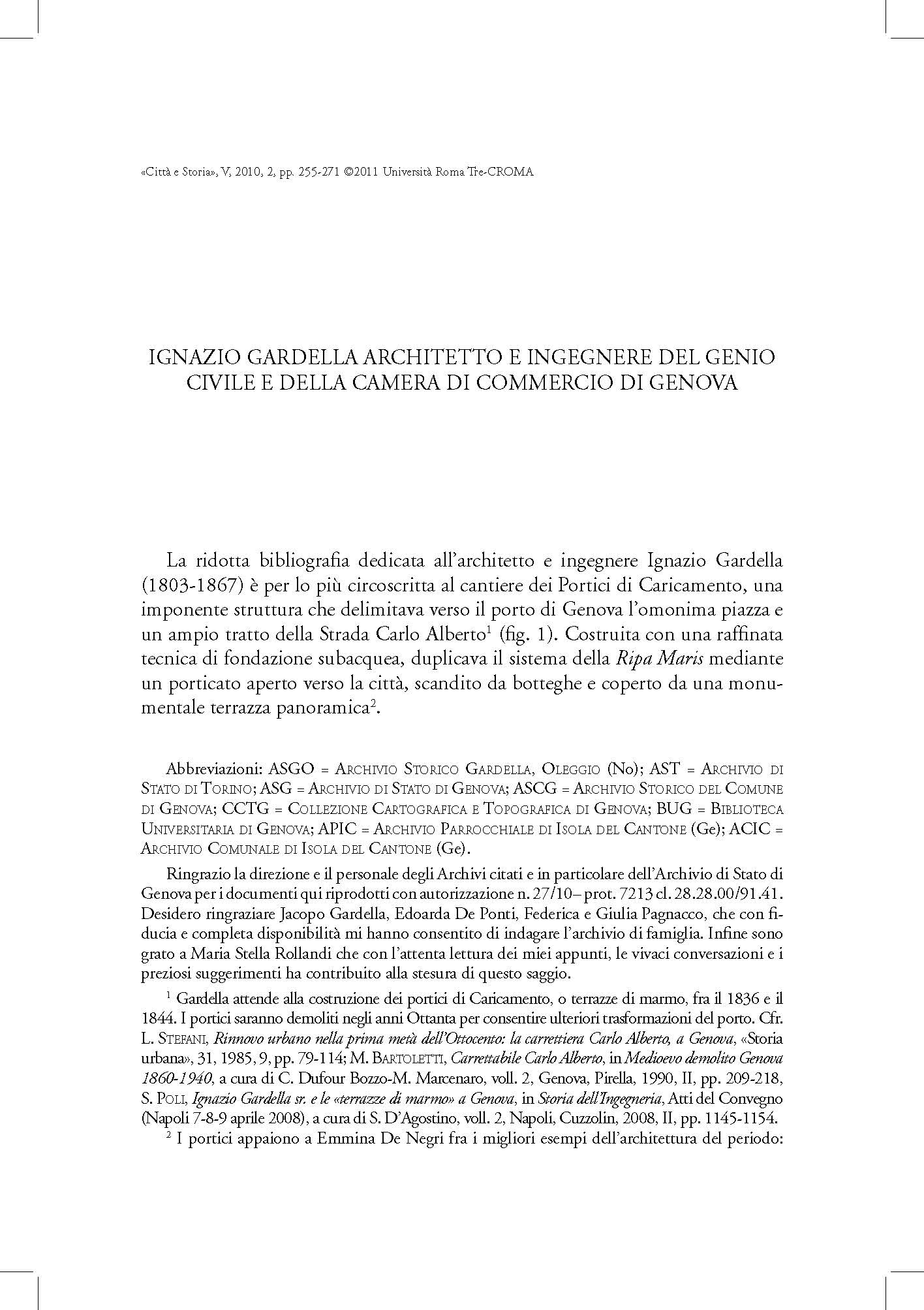Ignazio Gardella architetto e ingegnere del Genio Civile e della Camera di Commercio di Genova
6,00 €
The story of Ignazio Gardella (1803-1867) is paradigmatic of the development and work of architects and engineers in the Kingdom of Sardinia after the Restoration.
This essay illustrates the first part of Gardella’s work, by comparing documents from both public and private archives. His role as architect to the Chamber of Commerce, which was a promoter of radical renewal, both productive and urban, is interwoven with his tasks as engineer to the Genio Civile. This highlights the relationships and conflicts between the technical bureaucracies of the State, and the local institutions which were an expression of the economies and of the most enterprising social classes.
Over the years, Gardella developed a growing awareness of the central role reserved to architects and engineers, both in the management of urban readjustment, and in the efficient management of the central planning of the territory. In fact, through the founding of the Society of Civil Engineers and Architects of Genoa (1857), he could claim both autonomy from the narrow constraints of the State apparatus, and recognition and regulation for the profession to protect their work from being arbitrarily remunerated by private clients.
The story of Ignazio Gardella (1803-1867) is paradigmatic of the development and work of architects and engineers in the Kingdom of Sardinia after the Restoration.
This essay illustrates the first part of Gardella’s work, by comparing documents from both public and private archives. His role as architect to the Chamber of Commerce, which was a promoter of radical renewal, both productive and urban, is interwoven with his tasks as engineer to the Genio Civile. This highlights the relationships and conflicts between the technical bureaucracies of the State, and the local institutions which were an expression of the economies and of the most enterprising social classes.
Over the years, Gardella developed a growing awareness of the central role reserved to architects and engineers, both in the management of urban readjustment, and in the efficient management of the central planning of the territory. In fact, through the founding of the Society of Civil Engineers and Architects of Genoa (1857), he could claim both autonomy from the narrow constraints of the State apparatus, and recognition and regulation for the profession to protect their work from being arbitrarily remunerated by private clients.

